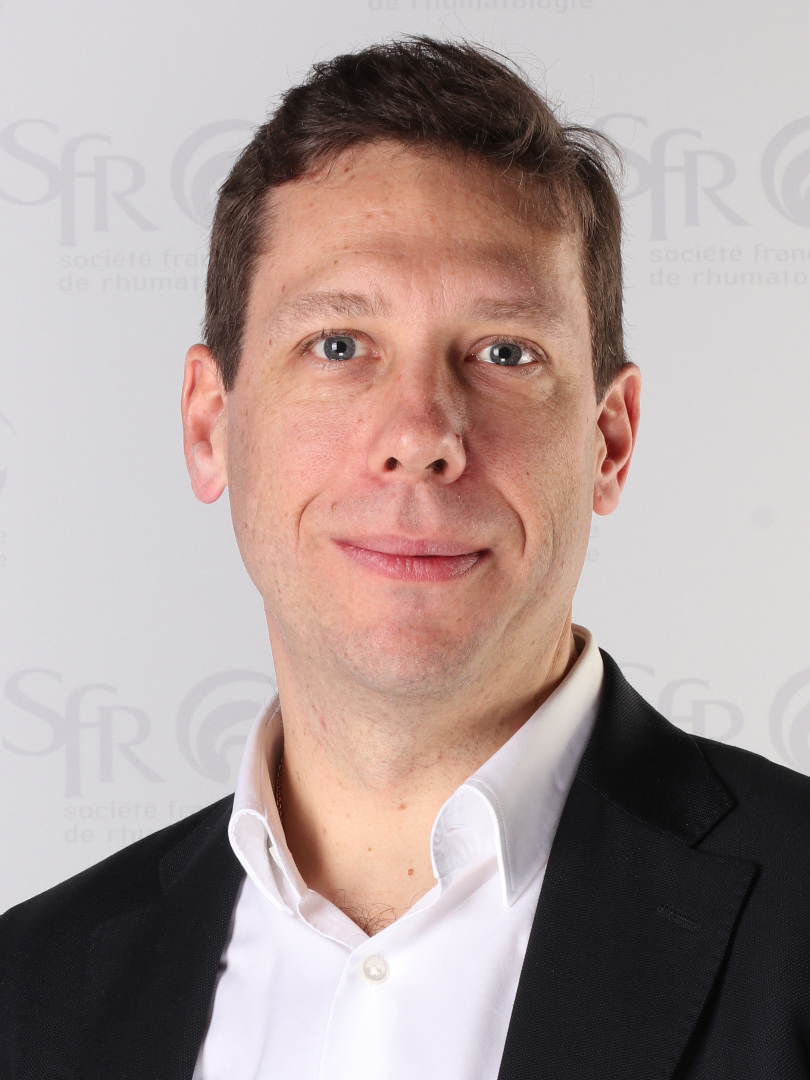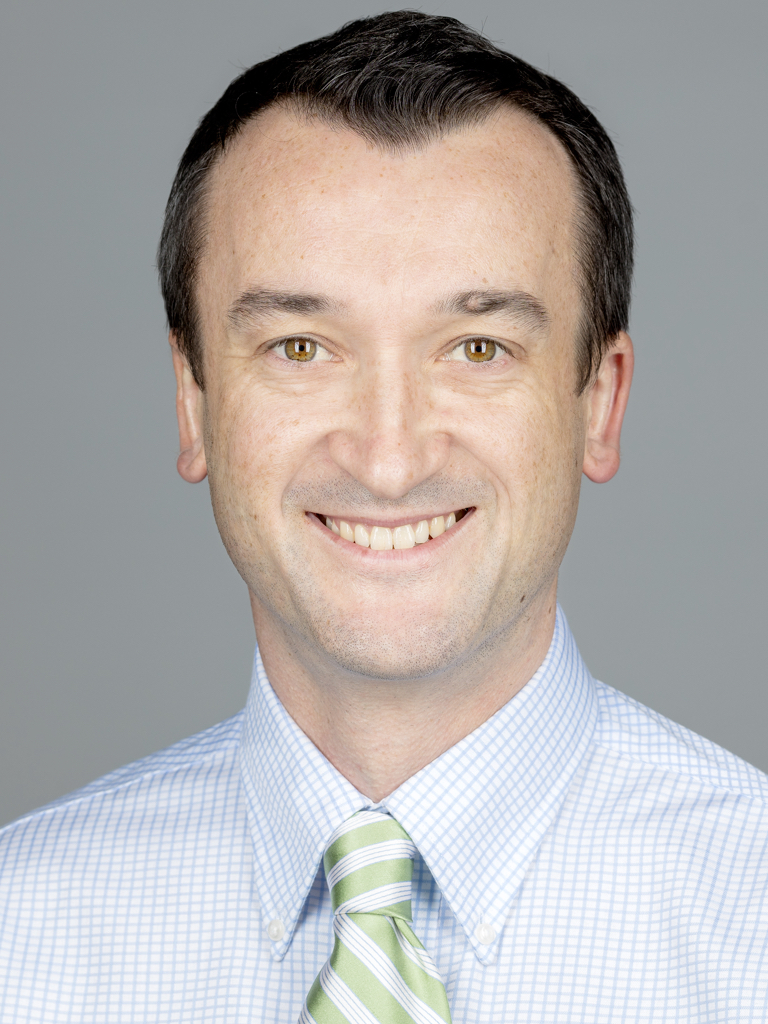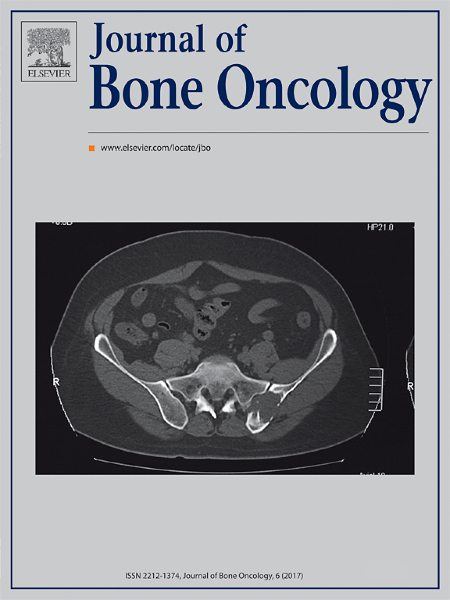
Dr. Sarah Amend
Sarah R. Amend, Ph.D. is an Associate Professor of Urology and Oncology at the Brady Urological Institute, Johns Hopkins University School of Medicine. She is co-Director of the Cancer Ecology Center. Sarah received her undergraduate degree from N.C. State University and her Ph.D. from Washington University in St. Louis. Dr. Amend is passionate about understanding cancer through the lens of evolutionary ecology. Her research is focused on understanding the convergent adaptive phenotypes that give rise to metastasis and therapy resistance to combat lethal disease. By investigating the cancer problem from an ecological perspective, she believes that we will find new questions - and new solutions - to centuries-long challenges in cancer research and treatment.

Dr. Cyrille Confavreux
Cyrille B. Confavreux, MD PhD, is Professor and Chair of Rheumatology at the University Claude Bernard Lyon I, and is currently leading the Department of Rheumatology South and the Bone Metastases Expert Center of Hospices Civils de Lyon, the second teaching Hospital in France.
With a physician network involved in bone metastases, he has set up a weekly multidisciplinary concertation meeting to promote bone health and define a personalized care program for each complex bone metastatic patient. He coordinates the “Lung Cancer Bone Metastasis Guidelines of the French South East Region”. He belongs to the board of European Study Group of Bone Metastases (GEMO), is a member of the Bone and Cancer Working Group of the International Osteoporosis Foundation (IOF) and a member of the American Society of Bone and Mineral Research (ASBMR).
He conducts research in Dr Clezardin’s INSERM research Lab (UMR 1033) on bone metastases and bone endocrine physiology. He is currently developing biomechanical and numerical simulation tools to evaluate fracture risk of bone mets in vivo and in humans with INSERM (Dr Follet) and IFFSTAR (Dr Mitton) group.

Dr. Jesus Delgado-Calle
Dr. Delgado-Calle is an Associate Professor of Physiology and Cell Biology, the Director of the Bone Imaging Core at the Center for Musculoskeletal Disease Research, and the co-leader of the Cancer Biology Program at the Winthrop P. Rockefeller Cancer Institute at the University of Arkansas for Medical Sciences. His research interests center on cancers that grow in bone, with a primary focus on multiple myeloma and metastatic breast cancer. His projects are translational and focus on understanding the crosstalk between cancer cells and cells of the tumor/bone marrow microenvironment, with the final goal of identifying targetable factors for treating cancer in bone. His laboratory is funded by the NIH through R-type mechanisms.

Dr. Claire Edwards
Dr. Claire Edwards is an Associate Professor of Bone Oncology at the University of Oxford where she leads a research group focused upon the pathogenesis of cancer-induced bone disease. Specific interests include the contributions of the host bone marrow microenvironment and the role of obesity, adipocytes and adipokines.

Dr. Peyman Hadji
Peyman Hadji obtained his medical degree from the University of Frankfurt, Germany, in 1990, and went on to complete his postgraduate training in obstetrics and gynaecology at the Hamburg Institute of Endocrinology and Reproductive Medicine and the Philipps-University of Marburg, where he received his PD in 2001. In June 2006, he was appointed as a full Professor of Medicine at the Philipps-University of Marburg. Since July 2014, Dr. Hadji is the head of the department of bone oncology, endocrinology and reproductive medicine at the Krankenhaus Nordwest in Frankfurt, Germany.
Dr. Hadji is the vice president of the Dachverband Osteologie (DVO) and the former vice president of the German Menopause Society. He is additionally an active member of several osteoporosis societies and oncology societies with a special interest in diagnosis and treatment of bone oncology in women with breast cancer.
His current research interest is on the management of women with breast cancer, with a special focus on cancer induced bone loss (CIBL), as well as studies on side-effect management in cancer therapies and outcome research. He is the first author of a recent practical guidance for the management of aromatase inhibitor-associated bone loss. Dr. Hadji is also a co-author of the recently published ESMO practice guidelines on bone health in cancer patients. He is also a co-author of the guidance on the use of bisphosphonates in solid tumours, a consensus recommendation from the second Cambridge conference on advancing treatment for metastatic bone cancer and a clinical experience and treatment recommendation on aromatase inhibitor-induced arthralgia. In addition to this, Dr. Hadji has performed a number of studies on compliance and persistence in oncology and osteoporotic therapies, and is involved in several clinical studies on different pharmacological interventions for osteoporosis including bisphosphonates, denosumab, parathyroid hormones, raloxifene, hormone therapy and tamoxifen - in collaboration with a number of national and international centres.
Dr. Hadji is a co-author of the German Osteoporosis Guidelines (DVO) for the diagnosis and treatment of osteoporosis, the German Guidelines for the use of HT in peri and postmenopausal women (DGGG), and the official position statement 2007 of the International Society of Clinical Densitometry (ISCD) for the use of Peripheral Dual-Energy X-ray Absorptiometry in the Management of Osteoporosis.
He has published over 200 peer-reviewed articles and book chapters in these fields. His editorial activities extend to co-editor in chief of the journal of bone oncology and refereeing for a number of national and international journals.

Dr. Rachelle Johnson
Dr. Johnson is currently Assistant Professor of Medicine at Vanderbilt University, where her lab studies the mechanisms driving tumor cell dormancy in bone and the molecular processes that enable disseminated tumor cells to colonize the bone. In particular she is interested in the role of leukemia inhibitory factor (LIF) signaling and hypoxia signaling in breast cancer dissemination and metastasis to the bone marrow. Dr. Johnson earned her doctorate in Cancer Biology from Vanderbilt University, where she studied bone metastatic breast cancer with Drs. Gregory Mundy and Julie Sterling in the Vanderbilt Center for Bone Biology. She then relocated to Melbourne, Australia to pursue a post-doc with Drs. Natalie Sims and Jack Martin in basic bone biology in order to better understand the physiological processes of skeletal homeostasis that may impact upon tumor cells. She then joined Dr. Amato Giaccia’s laboratory as a Postdoctoral Scholar at Stanford University, where she returned to the bone metastasis field.

Dr. Patricia Juarez
Patricia is an associate professor working in Cancer and Bone at the Department of Biomedical Innovation at the Center for Scientific Research and Higher Education, a research center located in a beautiful ocean town call Ensenada in Baja California, México. Her research interests focus in translational research for the study and treatment of bone metastases and bone disorders. Specifically, she is studying new molecules to treat bone metastases and osteoporosis, their molecular mechanisms, and the use of nanoparticles for drug delivery optimization. Her experience includes broad knowledge of in vitro and in vivo models of cancer and bone diseases.

Dr. Conor Lynch
Dr. Conor Lynch is an Associate Member/Professor at the H. Lee Moffitt Cancer Center and Research Institute in Tampa, FL, USA. His research interests center on skeletal malignancies including bone metastatic disease (prostate/breast), multiple myeloma, and osteosarcoma. Specifically, Dr. Lynch studies the molecular mechanisms that facilitate tumor-bone crosstalk and the identification of novel therapeutic targets. To this end, translational efforts focus on the delivery of novel drugs to skeletal tissues and CAR-T-cell design/application. His program is currently funded by the NCI and DOD Prostate Cancer Research Program (PCRP).

Dr. Maureen Lynch
Dr. Maureen Lynch is an Assistant Professor of Mechanical Engineering at the University of Colorado at Boulder. She has appointments in the University of Colorado Cancer Center, Biofrontiers Institute, and Biomedical Engineering. Research interests include biomechanics and mechanobiology of bone metastatic tumor cells, mechanoregulation of their crosstalk with bone cells, with an emphasis on osteocytes.

Dr. Penelope (Penny) Ottewell
Professor Penelope (Penny) Ottewell completed her PhD at The University of Liverpool (UK), before joining the University of Sheffield as a Research Associate. Whilst being based in Sheffield Penny has carried out international collaborative work spending time at INSERM (University of Lyon), France and at TUFTS Medical School in Boston, USA. She has been awarded a total of 13 national and international prizes for her research including the International Bone and Mineral Society Gregory Mundy Research Fellowship. In 2022 Penny was awarded her personal chair as Professor of Cancer Biology in the Mellanby Centre for Bone and Musculoskeletal Research. Work in Penny’s laboratory focusses on cancer metastasis with a particular emphasis on cytokine and immune cell regulation in the bone microenvironment. Her laboratory is currently funded by AstraZeneca, Beyer, The Medical Research Council, Breast Cancer Now and Yorkshire Cancer Research. In addition to being an active member of The Cancer and Bone Society (CABS), Penny works on the editorial board for multiple per reviewed journals, sits on the NCRI Bone metastasis strategy working group and is also a member of the grant review committees for Breast Cancer Now (UK) and The National Science Centre (Poland). Penny also serves as Chair of the British Association for Cancer Research (BACR) Breast Cancer Conference organising committee and the BACR Tumour Microenvironment 3D Models workshop.

Dr. Serkin Park
Dr. Serkin Park is a professor and the Chair of the Department of Biochemistry and Molecular Biology at Korea University College of Medicine, Seoul, Korea. He is also an adjunct associate professor of Medicine at Vanderbilt University School of Medicine, Nashville, TN. Dr. Park earned his DDS degree from Yonsei University, Seoul, Korea, and a Ph.D. in Cancer Biology from the University of Texas M. D. Anderson Cancer Center, Houston, TX. He further honed his expertise by completing a research fellowship with the Prostate Cancer Skeletal Metastasis NCI P01 research team at the University of Michigan, Ann Arbor, MI. Dr. Park's research stands at the crossroads of bone biology, immunology, and oncology. He is particularly interested in the roles of myeloid lineage cells in the progression of bone metastasis and tumor microenvironment. With a vision to make impactful contributions to bone and cancer research, he aspires to develop innovative therapeutics and diagnostics for bone metastasis and cancer-induced bone diseases.

SHREYA PATEL
Shreya is a 4th-year Ph.D. candidate at Rush University Medical Center in Chicago, IL. Her interest in bone metastasis was sparked by the limited treatment options and the need for a multidisciplinary approach. The lab she’s a part of concentrates on understanding cytoskeletal changes in bone metastatic breast cancer cells. Her specific project aims to establish a correlation between the differential expression of tubulin isotypes and overall survival in bone metastatic breast cancers. Her goal is to identify the tubulin code and its regulators seeking novel microtubule targeting strategies to hinder the bone metastatic potential of breast cancer cells. This research has the potential to pave the way for personalized chemotherapy regimens and improve patient care.
Additionally, she is an adjunct faculty member at the Center of Dental Medicine at Midwestern University. In this role, alongside dental students her research focus is on the development of dental scaffolds. Through their contributions to scaffold research, they have made significant advancements in the field of dental science. Their work is anticipated to contribute to the progress in tissue engineering and regenerative dentistry.

Dr. Julie Rhoades (Sterling)
Dr. Julie Sterling received her PhD in Molecular and Cellular Biology from the Medical College of Ohio in 2003. After graduating, she began her post-doctoral fellowship with Dr. Gregory Mundy at the University of Texas Health Science Center at San Antonio studying breast cancer metastasis to bone. In 2006, she moved with Dr. Mundy to Vanderbilt University. Dr. Sterling now has a joint appointment as a Researcher at the Department of Veterans Affairs: Tennessee Valley Healthcare System and an Assistant Professor in the Center for Bone Biology at Vanderbilt University. Her lab uses multi-disciplinary approaches including molecular biology, pre-clinical models, engineering, and imaging to investigate how the bone micro-environment regulates tumor establishment in bone and bone destruction with a specific focus on identifying new therapeutic targets.

Dr. Yusuke Shiozawa
Dr. Shiozawa received his M.D. in 2000 from Juntendo University School of Medicine and served there as a pediatrician specializing in hematology/oncology. In 2006, he completed his Ph.D. at Juntendo University School of Medicine and received a fellowship in pediatric hematology/oncology. In late 2006, Dr. Shiozawa then joined the University of Michigan as a Postdoctoral Fellow and progressed to Research Scientist establishing a direct link between hematopoietic stem cell (HSC) homing to the marrow and cancer bone metastases. There he was awarded with the Young Investigator Award from the Prostate Cancer Foundation. In 2015, Dr. Shiozawa joined the faculty at Wake Forest University School of Medicine. His current research focuses on elucidating mechanisms of cancer-induced bone pain, explicating the crosstalk between the gut and bone metastasis, and determining mechanisms of treatment-related adverse events.

Dr. Catherine Van Poznak
I am a medical oncologist whose clinical and translational research focuses on maintaining the integrity of bone in patients affected by breast cancer. In women with early stage breast cancer I investigate osteoporosis as a toxicity of cancer therapy. In advanced cancer I perform correlative and prospective clinical studies investigating bio-markers, treatment toxicity and novel therapies for osseous metastases. I have performed clinical trials investigating therapies to reduce the risk of skeletal complications of malignancy. I am also involved in researching osteotropism and tumor dormancy with evaluation of proteins and genes associated with the tumor’s potential to metastasize to bone. It is my goal to optimize the prevention, diagnosis and treatment of bone complications in patients affected by cancer.

Dr. Katherine Weilbaecher
Dr. Weilbaecher is a Professor of Medicine and Cellular Biology and Physiology at Washington University School of Medicine in St. Louis. Dr. Weilbaecher’s translational research focuses on the molecular basis of tumor reprogramming of the bone microenvironment, focused on beta 3 integrin genes: avb3, CD47, TSP1 and P2Y12 and the bone-homing molecules, CXCR4, G-CSF and VLA-1. She has developed numerous clinical trials to treat and prevent breast cancer bone metastases that have directly translated from her laboratory. She highly values training and mentoring, hematology/oncology clinical fellows, post-doctoral fellows, MD and PhD students to perform basic and clinical research into the mechanisms of metastasis and pathologic bone remodeling. She is a practicing breast cancer oncologist and a co-leader of the Breast Cancer Research program at the Siteman Cancer Center.

Dr. Janet Brown
Janet Brown is Professor of Translational Medical Oncology in the University of Sheffield, UK and Honorary Consultant in Medical Oncology at the Sheffield NHS Foundation Trust. Janet is Deputy Director of the Mellanby Centre for Bone Research in Sheffield and also holds a Visiting Professorship in Medical Oncology at the University of Leeds, UK.
After graduating in Medicine from the University of Newcastle upon Tyne and training in Oncology at the Northern General Hospital, Newcastle, Christie Hospital Manchester and Weston Park Hospital, Sheffield, she obtained her MD research degree working with Professor Rob Coleman at the University of Sheffield. She was appointed Senior Clinical Lecturer and Honorary Consultant in Medical Oncology at the University of Leeds in 2006. Her main areas of clinical practice are breast, prostate and renal cancers, with special interests in their effects on the skeleton.
Amongst a range of awards, she gained the American Society for Clinical Oncology Pain Merit Award in 2003 and the UK McElwain Research Prize for Medical Oncology in 2005. In 2008, she won a Cancer Research UK Clinician Scientist Fellowship for studies in bone oncology, which she held until 2014. She has published more than 120 peer-reviewed research papers and 200 abstracts and has current research funding totalling more than £13 million, with the majority as Principal Investigator, from Cancer Research UK, National Institute for Health Research, Yorkshire Cancer Research, Breast Cancer Campaign, Prostate Cancer UK, Weston Park Hospital Cancer Charity and other bodies.
As a clinician scientist, she engages in both clinical and laboratory research, with special interests in bone oncology with publications in major medical journals. She leads the Clinical Bone Oncology and Biomarkers Group in University of Sheffield, which has a particular focus on the impact of cancer on the skeleton in patients with breast, prostate and renal cancer and is Translational Lead for the Cancer Research UK Sheffield Experimental Cancer Medicine Centre. She is Chief Investigator on a range of clinical trials in bone oncology, particularly in breast cancer and is a member of the UK National Cancer Research Institute Clinical Study Groups in Breast Cancer and Renal Cancer.

















